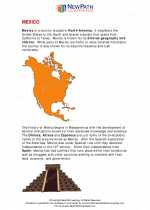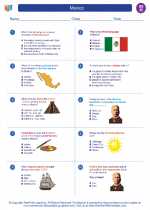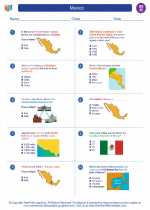Atlantic Ocean
The Atlantic Ocean is the second largest of the world's oceans, covering approximately 20% of the Earth's surface. It separates the continents of Europe and Africa to the east from North and South America to the west.
Physical Features
The Atlantic Ocean is characterized by its S-shaped basin. It has several major features including the Mid-Atlantic Ridge, which is an underwater mountain range that runs from the Arctic Ocean to the Southern Ocean.
Climate
The climate of the Atlantic Ocean varies depending on the region. The northern part of the Atlantic experiences colder temperatures due to the influence of the North Atlantic Drift, while the southern part is warmer and influenced by the Gulf Stream.
Marine Life
The Atlantic Ocean is home to a diverse range of marine life, including various species of fish, mammals, and invertebrates. Some iconic species found in the Atlantic include the Atlantic bluefin tuna, humpback whale, and the Atlantic puffin.
Human Activities
Human activities in the Atlantic Ocean include fishing, shipping, and offshore oil and gas exploration. The ocean also serves as a vital transportation route for trade between Europe, Africa, and the Americas.
Environmental Concerns
Environmental concerns in the Atlantic Ocean include overfishing, marine pollution, and the impact of climate change on ocean ecosystems. Efforts are underway to protect and preserve the ocean's biodiversity and natural resources.
Conclusion
The Atlantic Ocean plays a crucial role in the Earth's climate and ecosystem, and it has been an important part of human history and exploration for centuries.
[Atlantic Ocean] Related Worksheets and Study Guides:
.◂Social Studies Worksheets and Study Guides Eighth Grade. Mexico

 Worksheet/Answer key
Worksheet/Answer key
 Worksheet/Answer key
Worksheet/Answer key
 Worksheet/Answer key
Worksheet/Answer key
 Worksheet/Answer key
Worksheet/Answer key
